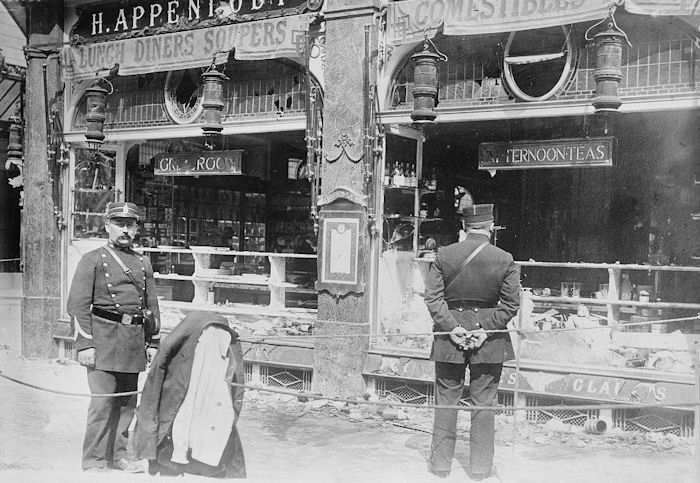French Government Flees to Bordeaux; A Million Parisians Follow
Special to The Great War Project
(1 September) After just one month a century ago, Europe is aflame with tens of thousands of dead soldiers in both the Eastern and Western Fronts, and thousands of prisoners.
There is no doubt that in the first month of the war, the Central Powers – Germany and Austria-Hungary – have gotten the best of the Triple Entente allies (France, Russia, and Great Britain.)
Russia is in retreat from the disastrous defeat at Tannenberg on the Eastern Front, and Britain and France are in painful retreat on the Western Front. Britain loses its first serious engagement at Mons, Belgium, as does France at Charleroi.
The only good news for the allies is in Serbia, where the Serbs force the Austrians out of their territory.
On September 1st a century ago, the government of France leaves Paris for (they hope) temporary headquarters in Bordeaux,“taking with it,” reports historian Max Hastings, “the gold reserves of the Bank of France.”
Parisians get the message. “Seeing the government quit the capital, a million humbler refugees did likewise.”
Among them, Marcel Proust, who heads north to Normandy. There the local hospital is packed with wounded soldiers, and Proust joins the effort to comfort them.
Just a few days before, a small plane drops several bombs on Paris as well as leaflets announcing the defeat of the French and Russian armies. The British ambassador to France writes “the Germans seem sure to succeed in occupying Paris.”
Those who intend to stay in Paris prepare for a siege. “Trees were cut down, barricades built,” writes historian Martin Gilbert, “and trenches dug on the main boulevards leading into the city.”
What the German occupation of Paris might look like takes place this same day in Brussels, already occupied by the Germans. There the German Governor issues a proclamation that reads, “It is the stern necessity of war that the punishment for hostile acts falls not only on the guilty but on the innocent as well.”
Still, on September 1st, a crucial bit of intelligence falls into French hands. In a haversack “caked with blood,” taken from a dead German cavalry officer, markings on maps indicate the German forces do not plan to put siege to Paris. Not only that, but it looks like the Germans are now vulnerable to counter-attack.
The Germans are having supply and transportation problems – their supply lines are stretched to the limit. Thousands of their supply trucks are broken down.
This is a moment for the French.

